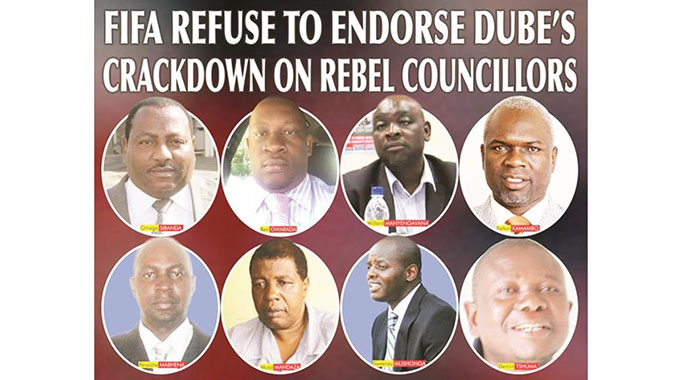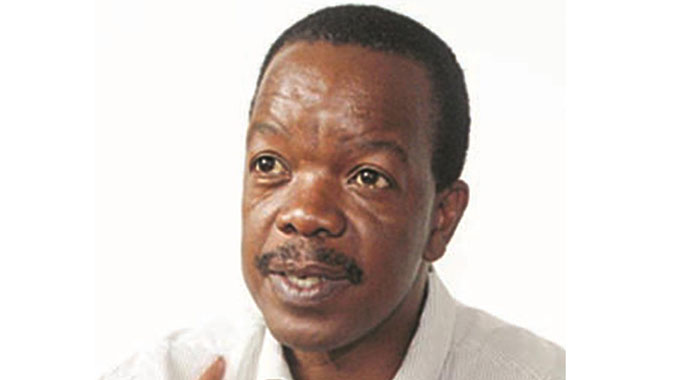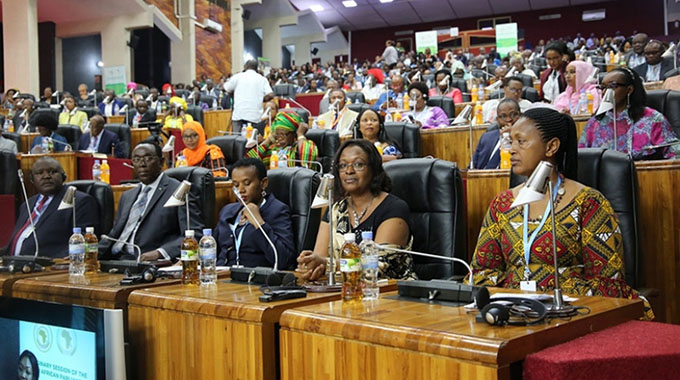The never-ending Zifa saga . . . Twenty-seven years after April bloodbath, little has changed

Robson Sharuko Senior Sports Editor
IT was the ultimate boardroom bloodbath, a tsunami which tore through domestic football, toppled a ZIFA board and Council, with the 13 ousted leaders being blacklisted from holding office and FIFA, in a rare move, taking the unusual step to endorse the carnage.
A new interim ZIFA board, led by the late business executive Brian Harry, was ushered into office.
And, amid all the chaos, the final nail was hammered into the Super League and the newly-established Premiership was officially recognised the representative league of top-flight football in this country.
In just one momentous week in April, 1993, the entire football landscape changed and, at the end of it all, a new interim ZIFA board was ushered into power to clean up the mess.
It all started on April 21, 1993, when the Sports Commission pulled the trigger and suspended the ZIFA board, dissolved the Council and ordered a full audit of the association’s financial transactions. Six days later, even FIFA — known for its hostility towards what it terms Government interference, had been tamed and backed the changes.
“Having investigated the case (suspension of the Zimbabwe Football Association executive), and considering the special circumstances, FIFA has no objection to the Sports Commission temporarily taking control of the Zimbabwe Football Association by installing the acting committee,’’ Sepp Blatter, the then FIFA secretary-general, wrote on April 27, 1994.
“However, new elections shall be carried out in 60 days, according to the statutes of the Zimbabwe Football Association.’’
Roger Muhlwa was named interim vice-chairman, Wellington Nyatanga (secretary-general), Moosa Ismail (fixtures-secretary), Richard Ruwodo, Ishamel Chatikobo, Mordecai Mahlangu and Roderick Muganhiri, a medical doctor who had been a football star, came in as board members.
The blacklisted administrators included the ousted ZIFA chairman, Trevor Carelse-Juul, vice-chairman Claude Zindoga, secretary-general John Nkathazo, treasurer Paul Timba, acting fixtures-secretary John Nyamasoka and regional chiefs — Mayford Mawere, Newab Khan, Stanley Shamido and Douglas Sidube. Robson Rundaba, who was the fixtures-secretary, had quit his post during the enquiry held by the SRC. The SRC accused that ZIFA board of financial mismanagement, failure to pay levies, employees, tax dues and questionable payments of bonuses to the executive committee members.
The ZIFA bosses were also accused of using public money to buy themselves expensive suits, which they wore during the AFCON qualifier against Bafana Bafana, while more than $27 600, according to auditors, Deloitte, from ticket receipts from that game, simply vanished.
The SRC noted ZIFA were virtually bankrupt and recommended Government provide a $1 million grant to the Dream Team Trust Fund, to cover the Warriors’ AFCON and World Cup assignments, and another $2 million, as a soft loan payable over three years, for the association’s operating costs.
The money would also help the association restructure their secretariat, head-hunt for a new chief executive, either at home or from outside the country and, if possible, engage FIFA to help them with such an individual to run the ZIFA office.
On Monday, the clock will mark exactly 27 years since FIFA made their unlikely intervention by, for once, siding with those who had dissolved a leadership of their member association.
But, while more than a quarter-of-a-century has passed, the challenges which plagued domestic football then, and the friction between the SRC and ZIFA, still exist to this day.
The ZIFA board, now just like then, has lost some of its members with vice-chairman, Gift Banda, battling a suspension stretching back to January last year while board member Chamu Chiwanza was booted out.
As, shown by this time-line of chaos, more things have changed, the more they have stayed the same.
September 2004 (FIFA Statement)
“Meeting on 22 September, 2004, under the chairmanship of Dr Viacheslav Koloskov (Russia), the FIFA Associations Committee, after reviewing the cases of some twenty associations, spread over five of the six confederations, voiced support for a plan of action drawn up by the FIFA administration for several member associations, including Gabon, Guatemala, Malawi, Tanzania and Zimbabwe, designed to improve operations, update statutes and, if necessary, organise new elections under the supervision of FIFA and the confederation concerned,’’ FIFA said in a statement.
July 2015
FIFA refuse to endorse the suspension of two ZIFA board members, vice-president Omega Sibanda and Bernard Gwarada (finance), and a dozen councillors, including all the regional chairmen — Willard Manyengavana, Piraishe Mabhena, Musa Mandaza and Felton Kamambo Region, by the Cuthbert Dube-led Council on May 16, 2015.
The SRC also refuse to endorse the suspensions and, instead, give FIFA a comprehensive update about the chaos in Zimbabwe football.
“The Sport and Recreation Commission notes with concern the continued turmoil in governance of football in the country,” the SRC director general, Charles Nhemachena, says in a statement.
“The reported suspensions of some members by the ZIFA Board, in addition to the earlier suspension of Women’s Football representative on the board (Miriam Sibanda) are but a manifestation of the dysfunctional governance that now characterises the administration of the beautiful game of football.
“It is apparent that the dysfunctional conflicts that now characterise the football leadership are so deep-rooted to the extent that no meaningful effort towards the development of football can be expected. This, coupled with other glaring inadequacies of our football leadership, has become a serious threat to our national interest.’’
August 2019
FIFA turn down a request from the SRC to use their power to remove the entire ZIFA leadership from office, and replace it with a normalisation committee, for a specified period.
FIFA say while they expect bodies like ZIFA to be fully accountable and, if required, submit to the authorities all relevant information regarding the use of public funds, they don’t believe there is need for the removal of Kamambo’s ZIFA leadership.
Should the ZIFA leadership be replaced by an interim committee, at the instigation of the SRC and the Youth, Sport, Arts and Recreation Ministry, FIFA say that would be deemed interference in the affairs of the association and could result in ZIFA’s suspension from FIFA, with the country’s national teams barred from international competitions.
In three days’ time, the clock will reveal that 27 years have passed since the week of the boardroom bloodbath culminated with FIFA playing the role of an unusual ally of the revolution that swept across domestic football.
But, looking at then and now, it’s hard to suggest anything has really changed.










Comments